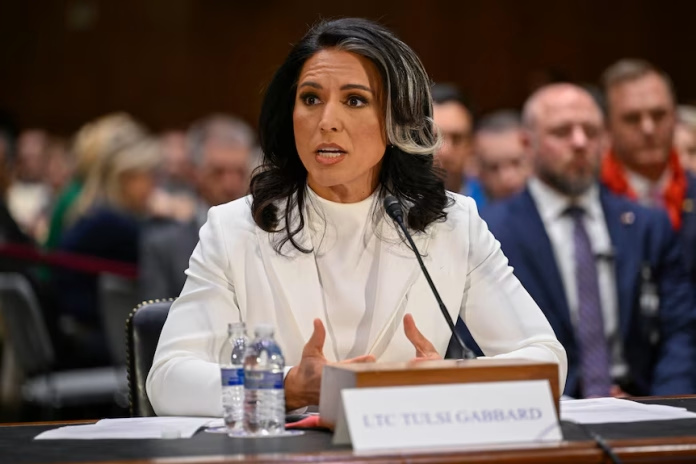US Director of National Intelligence Tulsi Gabbard has said that Iran may be able to produce a nuclear weapon “within weeks”. This marks a shift from her March statement to Congress, where she maintained that Iran was not actively pursuing such weapons.
Gabbard explained that her earlier comments were taken out of context by what she called “dishonest media”. At that time, she acknowledged Iran’s uranium stockpile but insisted there was no evidence of weapon development.
Her recent statement follows criticism from President Donald Trump. He claimed she was “wrong” and pointed to intelligence suggesting Iran has a large supply of nuclear material. According to him, the country could build a weapon “within months”.
Iran maintains its nuclear programme is peaceful and denies any ambition to develop weapons.
Tensions rise between Iran, the US, and Israel
On Thursday, President Donald Trump gave Iran two weeks to reach an agreement with the US on its nuclear activities. He also hinted at possibly joining Israel’s military operations against Iran.
Within the “America First” movement, opinions are divided over whether the US should get involved in the conflict.
Iranian Foreign Minister Abbas Araghchi said on Saturday that Tehran remains open to negotiations. However, he stressed that talks cannot continue while Iran faces air strikes and civilian casualties.
Gabbard revises statement following intelligence updates
Gabbard posted on social media that Iran now has the ability to produce a nuclear weapon “within weeks to months”. She added: “President Trump has been clear that can’t happen, and I agree.”
She also re-shared a video of her March testimony. In it, she said intelligence agencies had concluded Iran was not building nuclear weapons. At the time, she noted that Iran’s enriched uranium levels were unusually high for a country without nuclear arms. She also cited expert findings which stated that Iran had not resumed its weapons programme, originally halted in 2003.
Earlier this month, the International Atomic Energy Agency (IAEA) raised concerns over Iran’s uranium reserves. Enriched uranium can be used in reactors, but also in weapons.
Trump dismissed Gabbard’s earlier comments, telling reporters he was not interested in her views. He believes Iran is very close to having a nuclear weapon and has said the US would not allow that to happen.
Military escalation and human impact
In 2015, Iran agreed to limit its nuclear programme through a deal with major world powers. Talks resumed earlier this year, but were interrupted when Israel launched air strikes on 13 June. Prime Minister Benjamin Netanyahu described the attack as targeting the “heart” of Iran’s nuclear infrastructure.
He warned that Iran could build a weapon quickly if not stopped. Israeli strikes reportedly destroyed military installations and killed high-ranking personnel, including nuclear scientists.
Iran’s Ministry of Health reported 430 deaths. An independent group, the Human Rights Activists News Agency, estimated a higher toll of 657.
In retaliation, Iran launched missile and drone attacks that killed 25 people in Israel. One of the victims died from a heart attack during the strikes.
